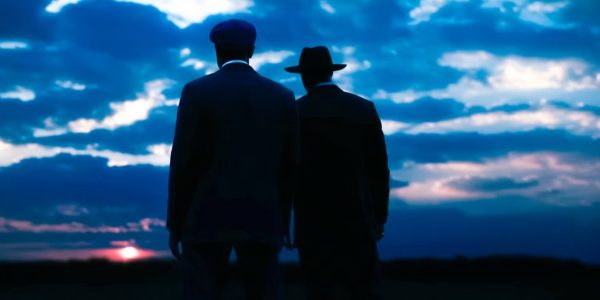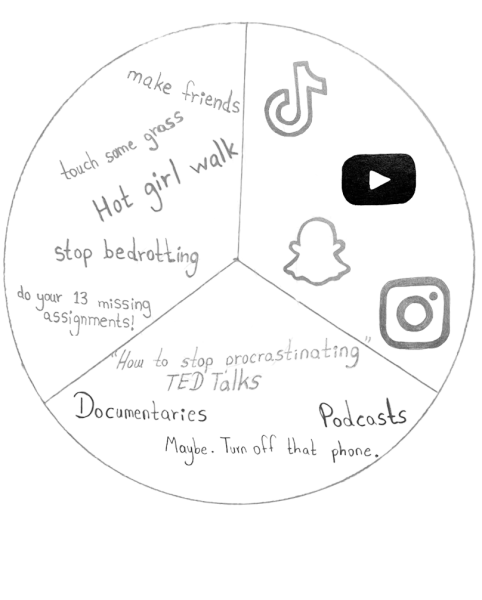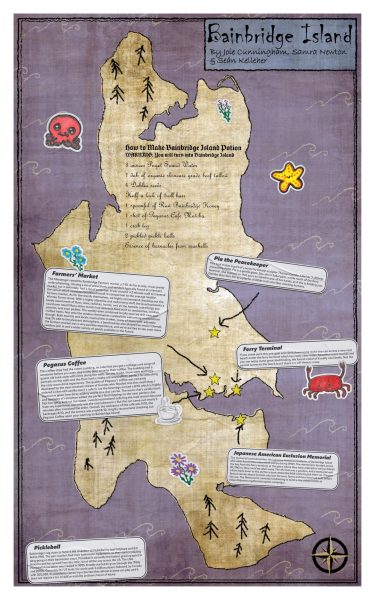Spring Awakening
First look at Garfield’s PG-13 musical.
Trigger warning: mental illness, sexual assault
The play Spring Awakening was banned on the first night of its original run in 1891. It was put on again, and banned again, in the 1960s. Then it was rebooted into a rock musical. Now, it’s coming to the Quincy Jones Auditorium.
For this year’s musical, Garfield theater takes us back to 1890’s Germany with a harrowing portrayal of teen life, set to catchy rock music. The story follows a cast of German teenagers navigating intense topics such as sexual awakening, abuse, and mental illness.
Melchior, the male lead (played by senior Charles Whitson), is a free-thinking teenager who rebels against his rigid religious school. He falls into a relationship with Wendla (played by junior Aimee Lefkowicz), whose mother failed to teach her anything about sex. Meanwhile, their friend Moritz (played by junior Eli-Sadow-Hasenburg) is rapidly failing school due to pressure and anxiety.
”It’s about coming to terms with sexuality and adulthood while living in a really oppressive society that doesn’t want to talk about it, so [the characters] have no outlet,” said drama president and stage manager Julia Haralson. This conflict creates serious tension.
“It’s based around the lack of sex education at that time in Germany,” said director and Garfield Theater teacher Stewart Hawk. “Issues that are touched on are suicide, incest, abuse, abortion, consensual or not consensual sex. There’s a lot of touchy issues and a lot of things to talk about and work through.”
The consequences of adults not honestly educating kids about sex is the show’s defining theme.
“The original play was written at a time when sex ed was not a thing,” said Junior cast member Sophia Mitchell. “That’s the reason that a lot of negative impacts for the characters happen.” Stating that lack of sex education leads not to abstinence but to unsafe sex is a stance that was radical then and is still controversial today.
The debate around sex ed remains relevant: data shows that abstinence-only sex ed is correlated with higher rates of teen pregnancy— a topic which is explored in the play.
“I think we live in a time where we’re starting to get more honest about what it’s like to come of age,” said Eli Sadow-Hasenburg, who plays the character Moritz. “Talking about sex is really important and has historically not been something that’s been done at all and continues to not be done very well.”
Since the play was written and set in the 1890s, repressive and patriarchal attitudes around sex and relationships shape the story. However, they also affected the attitudes of the original play’s author Frank Wedekind, giving the play severe flaws to the modern viewer.
“The play was originally banned because there was a lot of uproar over the fact that he suggested that there might be female sexuality,” said Sadow-Hasenburg. While that was considered feminist and radical for the time, the way in which female sexuality is presented in the original play comes off to the modern viewer as sexist and non-consensual.
”It’s about putting the issues in the show into their historical context,” said Haralson. “Maybe [these] attitudes towards women and sex were feminist at the time but they aren’t feminist now, so how can we acknowledge it? It’s an ancient show in a modern time.”
However, what we’ll see at Garfield is a very different show than the original which debuted in Germany in the 19th century. When it was rebooted in 2006, it was transformed from a play into a musical, inserting modern music and emotion into an old story.
“The dialogue is all really very strict and regimented because it was brought forward from the original play,” said director and Garfield Theater teacher Mr. Hawk. “But when we get to the songs, it’s the frustrations of the youth and the songs are pure rock and roll. It’s a very dynamic breakout of ‘here’s this rigidness of the [original dialogue]’, and then the inner self of the youth come out in song.”
It’s these historical contradictions that make the show so tricky to pull off, especially given the show’s controversy throughout its evolution.
”We want the audience to know that it’s supposed to be from that era,” said cast member Chloe Ingraham. “We want people to think ‘that is outdated’ but that these are things teenagers experience no matter where they are or when they are.” It’s important to critically acknowledge how attitudes have changed towards sex and gender dynamics since the 19th century.
The explicit and graphic portrayals of sexual abuse and mental illness demand extreme sensitivity, which Garfield Theater appreciates.
“We as a cast have spent a lot of time talking about it, and will spend a lot of time talking about it,” Sadow-Hasenburg said. “We’re bringing in experts in various fields, having really honest and safe conversations, talking a lot about trigger warnings. About how we can appropriately have people come in and watch this show that’s really important but also could potentially be not physically safe for some people.”
The cast is setting aside time to ensure the space feels comfortable for the entire ensemble.
”Every Tuesday we have a discussion with the whole ensemble and cast, with a professional mediator,” Haralson said, “to talk about the difficult topics in the show and how we want to deal with them.” They’ve brought in experts including a sex ed instructor and a teen mental health expert to help them process what the characters they play are experiencing.
They are also putting thought into making the show feel safe for audiences, considering measures including trigger warnings, posters in the lobby, and collaboration with the Sexual Assault Awareness Club to educate viewers and facilitate conversations.
“We are trying to make this show as accessible as possible to make sure the Garfield community is comfortable,” Haralson emphasized. “If there’s anything we can include to make it accessible and a safe space, let us know.”
Despite the risque elements of the musical, Mr. Hawk has no doubt that it’s worth the extra effort because Spring Awakening has an important message to communicate.
“This show really puts it out there that we shouldn’t be hiding this stuff. We need to be educating our kids, we need to be proactive advocates for each other.”






